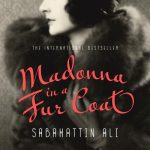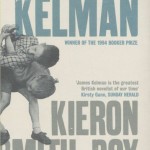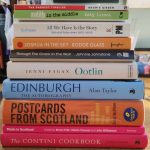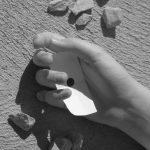A uniquely talented writer of short stories, novels and poetry, Anne Leigh Parrish opens up about owls, Monet and the art of precision
Support independent, non-corporate media.
Donate here!
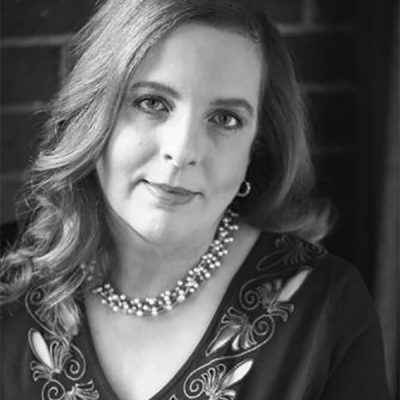
How did you start writing? And how was the progress from writing for yourself to being published? I wrote cute little stories that my fourth-grade teacher adored and asked me to read to the class. Then I stopped writing creatively for a time. In college, I loved my history papers, and realized I was always focusing on language, crafting an idea, and the best way to get my reader to pay attention. Always drawn to fiction, at twenty-seven, after earning a Master’s in Business Administration and working as an economics consultant, I threw in the towel on that career and returned to stories. They were less cute and always about unhappy people. As to writing for myself versus for other people, I kept a journal or diary that was only for me; stories were submitted immediately. This was a bad strategy, looking back, because I wasn’t ready to publish. I had a lot to learn about craft.
You’re adept at creating a whole, believable word in your short stories. How did you develop that skill? I appreciate the compliment! To write short stories in the first place, you have to be efficient and economical. Think about how many words you’re devoting to a scene, and ask yourself if that number of words make sense. I don’t mean getting completely mathematical about it, just being aware of proportion. Don’t spend a thousand words of a five thousand word story describing someone’s house unless the house is important enough to assume one-fifth of your reader’s attention. Over time, one becomes focused on what is essential to tell the story and what’s not. Like everything else in writing, it’s a matter of practice and being ruthless in one’s editing process.
How did you get the idea for Caleb’s Girl? (published on Product last month) I love magical realism and my short fiction has tended that way from time to time. This particular story was in response to feeling too much attention is paid to how a woman looks. Men, too, are judged that way, but not nearly as harshly.
Where do you get your information for your books? Do you like to research before or during the writing process or do you get the main story down and then flesh it out? I research when it’s necessary. My Dugan Family stories (Our Love Could Light The World; The Amendment; Maggie’s Ruse; and most recently A Winter Night) didn’t need much research. I have a novel publishing in the fall of 2022 called An Open Door. This one is set in 1948, loosely based on my parents’ lives, and did need some factual nailing down.
What was one of the most surprising things you learned in creating your books? How strange people are, and how desperate. I knew that before, of course, but digging into someone’s soul – fictional or otherwise – is always an eye-opener.
What literary pilgrimages have you gone on? I haven’t gone on any pilgrimages, per say, but in San Francisco I’ve visited City Lights bookstore several times and once in Atlanta I drove past the home of Margaret Mitchell.
Does a big ego help or hurt writers? That’s an interesting and subtle question. You need confidence to write – to learn from your mistakes; faith that you can improve and say what you want to say. If that means having a big ego, then a big ego helps writers. That said, confidence is wonderful until it slides into arrogance or fear. You have to get feedback on your work. Readers view your world their own lens and you don’t know what that lens is beforehand. Not everyone loves what you write, though most people will be respectful about where you go wrong (usually). It’s important to be able to weigh responses and comments. If someone gives you a one-star review because they don’t like your main character (and yes, this has happened to me) then you have to remind yourself that writing is not a popularity contest. If someone gives you a bad review because you didn’t deliver on what you promised – if the story or novel sets up expectations you don’t fulfil, that’s a valid remark and one you should think hard about.
Is there anything you know now about your career that you wish you knew when you started out? Yes, a couple of things. First, that editors and publishers are overwhelmed by submissions. Even if most of those are terrible, they still ask to be read and thought about. Next, how hard it is to get noticed, even after you’ve written something wonderful and it’s out in the world. Self-publishing hasn’t been the best development for serious writers – not that self-published writers aren’t serious, I don’t mean that. I mean if anyone can publish a book, lots of people will do just that. How do readers tell when something is worth reading? While I do think you don’t need a publisher to decide if your work is worth it or not, publishers play a huge role as gate-keepers. They read all sorts of books, develop an aesthetic, and are willing to spend their own money to bring a book out. This counts for something. A great deal, actually.
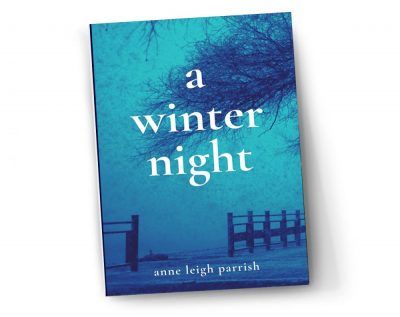
Do you have a particular approach to how you create the structure of your novels, or is each one different? I don’t outline, I just start the plot where the trouble is and move forward. I stop often and get a sense of what the big picture is and if the pieces on the page are moving toward building it successfully or not.
What drives you to write? I learned a long time ago that I’m crazier when I’m not writing that I am when I’m writing. It’s a simple case of choosing the positive over the negative.
If you could steal a painting from anywhere in the world to hang above your writing desk, which would it be? Anything by Claude Monet.
What is your work schedule like when you’re writing? That depends on what else is going on in my life, but in general I put in a good morning and a good early afternoon. I usually peter out around three to four p.m.
What was the best money you ever spent as a writer? I’d say arranging for blog tours. This helps people who don’t know me, and most people don’t, learn who I am.
As a writer, what would you choose as your mascot/avatar/spirit animal? My children chose that for me – I am Mother Owl to them.
What does literary success look like to you? Writing what you want the way you want to and getting it published. It would be lovely if more money came with that, but I take what there is and am grateful.
What’s the most difficult thing about writing characters from the opposite sex? Reminding myself that men are complex, too, and have all the same problems women do. Only the world is geared much more in their favor.
What was your hardest scene to write? Boy, that’s a tough one. To be honest, they’re all hard in their way. Probably a sex scene without being vulgar or explicit. That’s always a challenge.
Apart from Product, what are your favourite literary journals? I love The New Yorker Magazine (though this isn’t a journal, really, but a mainstream publication). I love New Pop Lit (and not just because they often publish me. S/Tick is great for its feminist emphasis, as is Julie Anderson’s Feminine Collective!
How do you feed and nurture your imagination? Nature does a good job. It’s really been a huge source of inspiration for my poetry.
What was the spark for “The One That Got Away”, your new short story published in Product today? This piece was inspired by how readers and critics react to our work. When we’re gone, what will be said of us? Who will be speaking? The piece was also inspired, as so much of my fiction is, by a long-standing relationship between a man and a woman. Connections remain strong, even if a relationship dissolves, and we carry an estranged person around with us forever, it seems.
How did you learn to nuance your characters so that they are not all good, or bad, but a credible, human mix of both? By observing how people really are – they’re complex, conflicted, and ambivalent. They’re pulled in multiple directions and face competing demands.
If you could get people to read one American novel, what would it be? The Sound and The Fury by William Faulkner. It’s a challenging book – hard to follow. You have to read it a couple of times to figure out what Faulkner is doing with the chronology. It’s an excellent exploration of Southern culture and Southern decay, by which I mean the determination to cling to old values and belief systems. In my country this is a huge problem even today. Vaccination rates in the South are lower than in the rest of the country; hence Covid’s Delta variant hit that area particularly hard.
*
Award-winning writer Anne Leigh Parrish has two new titles coming from Unsolicited Press: the moon won’t be dared, a poetry collection, October 2021; and an open door, a novel, October 2022. Her latest novel, a winter night, released in March 2021 from Unsolicited Press, is the most recent installment in her popular Dugan Family story. She is the author of nine other books and lives in the South Sound Region of Washington State. Find her online at her website anneleighparrish.com and Twitter, Facebook, Medium, Instagram, LinkedIn, and Goodreads.





